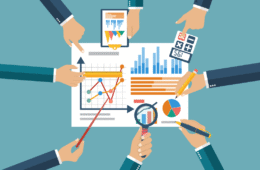 October 7, 2025
October 7, 2025
Debt collection has traditionally been seen as a manual and labor-intensive process—reliant on endless phone calls, visits, and paperwork. In Uganda, where small and medium-sized enterprises (SMEs) play a central role in the economy, delayed loan payments and overdue invoices create significant challenges. Businesses spend valuable time chasing after debtors, often with limited success.
However, the rise of technology in debt collection is changing this landscape dramatically. From automated reminders to AI-driven analytics and digital payment platforms, modern tools now make debt recovery faster, smarter, and more cost-effective.
At Boresha Credit Services Uganda, we leverage these innovations to help businesses streamline debt collection, improve cash flow, and maintain healthy customer relationships. This article explores the role of technology in modern debt collection and why businesses in Uganda cannot afford to ignore it.
The Shift from Traditional to Technology-Driven Debt Collection
For decades, debt recovery was handled through manual methods—letters, physical visits, and countless phone calls. While these methods still play a role, they are often inefficient and costly. Technology introduces several advantages:
- Speed: Automation accelerates communication and follow-up.
- Accuracy: Digital systems reduce human errors in tracking payments.
- Scalability: Tools can handle hundreds of accounts simultaneously.
- Data-driven insights: Analytics improve decision-making on repayment strategies.
The transformation is not about replacing people but empowering debt collectors with tools that enhance efficiency.
Key Technologies Transforming Debt Collection
1. Automated Communication Tools
Automation allows debt collectors to send SMS reminders, emails, and app notifications without manual effort. Clients receive timely nudges, which significantly improve repayment rates.
Example: A client with a due payment automatically gets an SMS reminder two days before the deadline, followed by an email on the due date, and a call alert if payment is still pending.
2. Debt Management Software
Debt collection software centralizes all debtor information, including:
- Payment history
- Communication records
- Outstanding balances
- Recovery progress
For businesses in Uganda, this means real-time visibility on overdue accounts and smarter resource allocation.
3. Artificial Intelligence (AI) and Predictive Analytics
AI tools can analyze debtor behavior and predict the likelihood of repayment. This helps agencies like Boresha tailor strategies, such as:
- Offering flexible plans to clients likely to pay
- Escalating legal action for high-risk debtors
- Prioritizing accounts that maximize recovery rates
4. Mobile Money Integration
Uganda’s financial landscape is dominated by mobile money platforms (MTN Mobile Money, Airtel Money, etc.). Integrating debt collection with mobile money enables seamless repayment options, removing barriers for debtors and speeding up collections.
5. Secure Online Portals
Businesses and debtors can access secure portals to track balances, set payment reminders, and make direct payments. Transparency builds trust while reducing disputes.
6. Digital Payment Tracking
Instead of reconciling accounts manually, digital systems automatically update payments in real-time, minimizing errors and saving businesses countless hours.
Benefits of Technology in Debt Collection
Faster Recovery
Automated reminders, instant mobile payments, and AI-driven prioritization mean faster debt recovery cycles.
Reduced Costs
Technology reduces the need for large in-house collection teams. Businesses pay less for manual labor and avoid high operational costs.
Improved Compliance
Automated systems can be programmed to follow Uganda’s legal frameworks and international best practices, reducing risks of lawsuits or regulatory violations.
Better Customer Relationships
Technology allows for personalized communication, offering debtors flexible repayment options and reducing aggressive collection tactics. This maintains business-client relationships.
Data-Driven Decision Making
Analytics provide insights into repayment trends, seasonal patterns, and debtor behavior. Businesses can plan smarter, forecast cash flows, and reduce future defaults.
Technology in Uganda’s Debt Recovery Landscape
Uganda’s growing fintech ecosystem makes it an ideal market for digital debt collection solutions. Businesses are increasingly integrating:
- Mobile money repayment systems for convenience.
- Digital invoicing platforms that link directly to payment reminders.
- AI-powered scoring systems that assess debtor risk before extending credit.
At Boresha Credit Services, we combine these technologies with human expertise, ensuring both efficiency and empathy in collections.
Challenges of Technology Adoption in Debt Collection
While technology offers many benefits, businesses in Uganda face challenges, such as:
- High setup costs for advanced software.
- Limited digital literacy among some SMEs.
- Data privacy concerns that require robust security measures.
- Dependence on internet and power in areas with limited infrastructure.
Despite these hurdles, the long-term benefits outweigh the initial challenges, making technology a worthwhile investment.
Boresha Credit Services: Leveraging Technology for Clients
At Boresha Credit Services Uganda, we have embraced cutting-edge tools to deliver outstanding results for our clients. Our approach includes:
- Automated debtor reminders via SMS and email.
- Mobile money repayment channels for quick settlements.
- Digital debtor tracking systems to ensure no account is missed.
- Analytics-based decision-making to optimize collection strategies.
- Secure communication platforms that build trust with clients.
By merging technology with professional expertise, we help businesses recover debts ethically, quickly, and cost-effectively.
FAQs on Technology in Debt Collection
Q1: Does technology replace human debt collectors?
A1: No. Technology supports and enhances human effort. While tools handle automation, professional collectors still manage negotiations and relationships.
Q2: Is mobile money integration reliable for debt collection in Uganda?
A2: Yes, mobile money is the most widely used payment method in Uganda. Integrating it into debt recovery ensures convenience and speed.
Q3: Can SMEs in Uganda afford debt collection technology?
A3: Absolutely. Agencies like Boresha provide scalable solutions that are cost-effective even for small businesses.
Q4: How does AI improve debt recovery?
A4: AI predicts debtor behavior, allowing collectors to focus efforts where recovery chances are highest, saving both time and resources.
Q5: Is digital debt collection safe?
A5: Yes. Agencies use secure systems with encryption to protect sensitive data and comply with privacy regulations.




